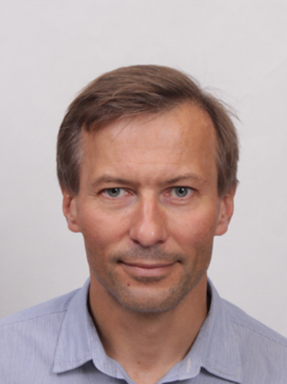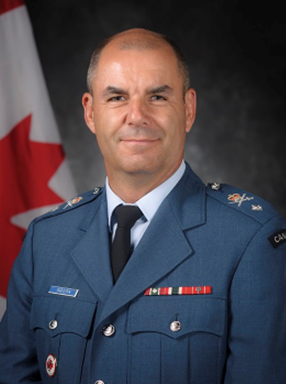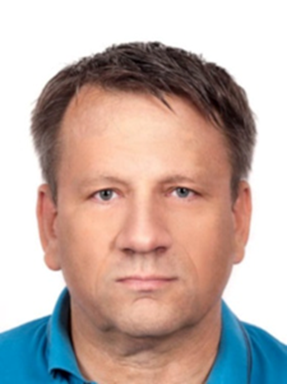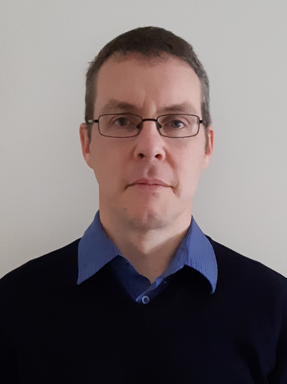The 5G standard has the potential to revolutionize wireless communications and computing, with 5G expected to enable orders of magnitude gains in performance over current systems. Although the standard and technologies are designed with a focus on the civilian market, the promised capabilities of 5G technologies and use cases have immense potential to bring opportunities to modernize military communication systems as well. This panel intends to explore and discuss the security of these technologies in the context of military applications; security is of paramount concern in military communications, with military security requirements differing from those of commercial applications for which many 5G technologies were primarily developed.
Moderator
 David Brown, Defense Research and Development Canada, Ottawa, Canada
David Brown, Defense Research and Development Canada, Ottawa, Canada
David Brown is a Defense Scientist at Defense Research and Development Canada, located in Ottawa, Canada. He currently leads the Resilient Tactical Networks team, part of the Cyber Operations and Signals Warfare section. His research interests include cyber security for wireless and mobile networks, cyber situational awareness computation and dissemination, and cyber operations for military tactical networks. David received his B.Sc. (Eng.) in 2000 and his M.Sc. (Eng.) in 2002, both in Electrical and Computer Engineering from Queen’s University, Canada; he received his Ph.D. in Electrical Engineering from the University of Toronto, Canada in 2008.
 Konrad Wrona, NATO Cyber Security Centre, The Hague, The Netherlands
Konrad Wrona, NATO Cyber Security Centre, The Hague, The Netherlands
Konrad Wrona is a Principal Scientist at the NATO Cyber Security Centre in The Hague, The Netherlands, where he is leading the Architecture, Policy and Innovation team. He is also a Research Professor at the Military University of Technology in Warsaw, Poland. Konrad has over 20 years of work experience in an industrial (Ericsson Research and SAP Research) and in an academic (RWTH Aachen University, Media Lab Europe, and Rutgers University) research and development environment. He has received his M.Eng. in Telecommunications from Warsaw University of Technology, Poland in 1998, and his Ph.D. in Electrical Engineering from RWTH Aachen University, Germany in 2005. He is an author and a co-author of over seventy publications, as well as a co-inventor of several patents. The areas of his professional interests include broad range of security issues – in information systems, communication networks, wireless and mobile applications, distributed systems, and Internet of Things. Konrad Wrona is a Senior Member of the IEEE, Senior Member of the ACM and a member of IACR.
 Brigadier-General P.C. Sabourin, CD
Brigadier-General P.C. Sabourin, CD
Director General Information Capabilities and Force Development
Brigadier-General Patrice Sabourin was born in Quebec City and started his career in 1987 at the Royal Military College in St-Jean. His first appointment upon graduation was at 71 Comm Gp in St-Hubert. In 1997, he was posted to Ottawa to become the first Ops O of the National System Management Centre (NSMC) which eventually became the CF Network Operations Centre (CFNOC). His first appointment as a Maj was at the PeopleSoft project and after two years, he returned to work at CFNOC.
In 2005, BGen Sabourin was posted to Winnipeg as the Wing Telecommunications & Information Services Officer (WTISO). Promoted to LCol in 2007, he was posted back to Ottawa as the Technical Services Officer (TSO) for the Canadian Forces Support Unit (Ottawa) (CFSU(O)). In 2009, he was posted to Bagotville as the Wing Logistics and Engineering Officer (WLEO). He then returned to Ottawa (for the third time) and worked at the Air Staff in new Directorate of Air Domain Development (DADD). Promoted to Colonel in 2014 he was appointed the Director of Cyber Force Development and appointed as Commander Canadian Forces Information Operations Group (CFIOG). Promoted to his current rank in June 2018, he was appointed the Director General Information Management Operations. BGen Sabourin is currently the Director General Information Capabilities and Forces Development.
BGen Sabourin was the CO of the Canadian Forces Station Alert from January to July 2005. He also deployed 1 year at ISAF HQ as a Planning Officer for the Stability Division. He has a Master’s Degree in Science from Institut national de recherche scientifique and one in Defence Studies from RMC. He is also a graduate from the Joint Command and Staff Program in Toronto.
He is married and has three children. He tries to maintain a healthy lifestyle by cycling and running.
 Alan McBride is cybersecurity lead at Bell Labs Consulting. He has thirty years industry experience, primarily in the domains of telecommunications network management and cybersecurity. Mr. McBride is based in Dublin, Ireland. He graduated from Trinity College, University of Dublin, with a degree in Computer Science before starting his career with British Telecom at their research laboratories in Martlesham Heath, UK. Alan has engaged with BLC clients globally on consulting projects related to securing 5G, cloud, SDN, NFV and critical infrastructure vertical enterprises including energy utility companies. He is a certified information systems security professional (CISSP) and has held certified ethical hacker (CEH) and cloud security alliance (CSA) certificate of cloud security knowledge (CCSK) certifications.
Alan McBride is cybersecurity lead at Bell Labs Consulting. He has thirty years industry experience, primarily in the domains of telecommunications network management and cybersecurity. Mr. McBride is based in Dublin, Ireland. He graduated from Trinity College, University of Dublin, with a degree in Computer Science before starting his career with British Telecom at their research laboratories in Martlesham Heath, UK. Alan has engaged with BLC clients globally on consulting projects related to securing 5G, cloud, SDN, NFV and critical infrastructure vertical enterprises including energy utility companies. He is a certified information systems security professional (CISSP) and has held certified ethical hacker (CEH) and cloud security alliance (CSA) certificate of cloud security knowledge (CCSK) certifications.
 Sławomir Kukliński (Orange Polska and Warsaw University of Technology) received his PhD with honours from Warsaw University of Technology in 1994, and since then, he is Assistant Professor there. He teaches mobile and wireless systems security. From 2003 he has also been working for Orange Polska as Research Expert focused on mobile and wireless systems, focusing on self-managed and cognitive solutions. At present, he works intensively on network slicing. As a principal investigator, he led many national research projects and was involved in many international projects, including European projects FP6 MIDAS, FP7 EFIPSANS, FP7 4WARD, FP7 ProSense, Celtic COMMUNE, EU-Japanese project 5G Pagoda and coordinated the Polish-Luxembourgish project on Cognitive SDN (CoSDN). He is currently involved in the EU-China project 5G-Drive and EU projects concerning 5G -5G Drones and MonB5G. He was engaged in SDN standardization in ITU-T (Study Group 13) and IETF activities on network slicing. Slawomir Kukliński has published more than 80 conferences and journal papers, served as a TPC member of many conferences, and gave several invited keynotes.
Sławomir Kukliński (Orange Polska and Warsaw University of Technology) received his PhD with honours from Warsaw University of Technology in 1994, and since then, he is Assistant Professor there. He teaches mobile and wireless systems security. From 2003 he has also been working for Orange Polska as Research Expert focused on mobile and wireless systems, focusing on self-managed and cognitive solutions. At present, he works intensively on network slicing. As a principal investigator, he led many national research projects and was involved in many international projects, including European projects FP6 MIDAS, FP7 EFIPSANS, FP7 4WARD, FP7 ProSense, Celtic COMMUNE, EU-Japanese project 5G Pagoda and coordinated the Polish-Luxembourgish project on Cognitive SDN (CoSDN). He is currently involved in the EU-China project 5G-Drive and EU projects concerning 5G -5G Drones and MonB5G. He was engaged in SDN standardization in ITU-T (Study Group 13) and IETF activities on network slicing. Slawomir Kukliński has published more than 80 conferences and journal papers, served as a TPC member of many conferences, and gave several invited keynotes.
 Austin Chamberlain, Defence Technology Agency, Auckland, New Zealand
Austin Chamberlain, Defence Technology Agency, Auckland, New Zealand
Austin Chamberlain is a Defence Scientist with the Defence Technology Agency in Auckland, New Zealand. He is a cyber specialist in the Communications, Networks and Cyber section. His work focuses on cyber security and cyber operations as part of a military cyber capability. Austin completed his MSc (Information Security) at University College London in 2017.
 Eric Rodgers, Defence Technology Agency, Auckland, New Zealand
Eric Rodgers, Defence Technology Agency, Auckland, New Zealand
Eric Rodgers is a Defence Scientist and Researcher at the Defence Technology Agency, located in Auckland New Zealand. He is part of the Communications, Networks and Cyber section. His research is primarily focused on future communications and networking, with an interest in the cyber security impact on technology. Eric received his BSc (CompSci) in 2000 at The University of Auckland.
